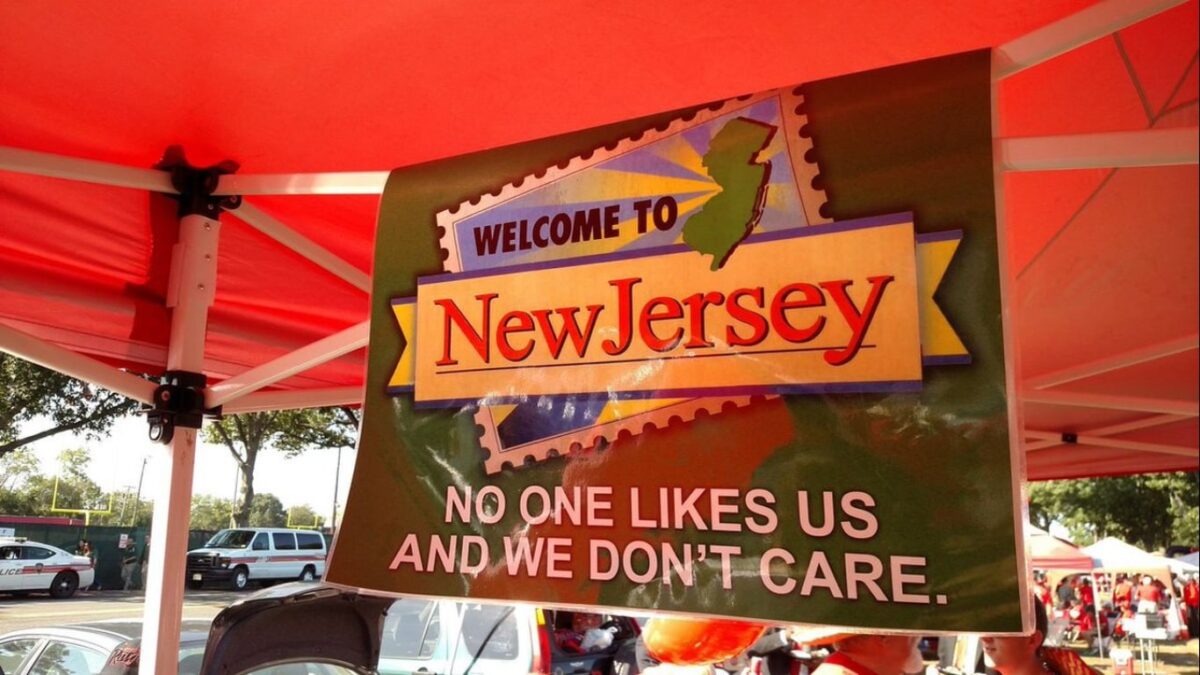For those considering a move to NJ, the Garden State offers both opportunities and some challenges. Its proximity to two major cities (NYC and Philadelphia) make it a great option for people who want to have access to all of the amenities of a big city without the high cost of living. While moving to NJ might be appealing to you, your first step is to weigh the pros and cons of living in NJ to help you make informed decisions about your ideal home. Once you’ve done that, you can start looking for movers NJ residents can rely on to help make the transition smoother.
The Pros of Moving to New Jersey
High Quality of Life
There aren’t many states that offer good schools, healthcare, job market, etc. but New Jersey checks almost everything off on the list. As of 2023, New Jersey is currently ranked as the 5th happiest state in the country. When you move to New Jersey you can enjoy:
- Excellent public schools – the schools in NJ are ranked as the 3rd best in the states
- Wide variety of outdoor activities – from hiking to hanging out at the beach, NJ offers it all
- Great healthcare – New Jersey ranks 4th in the US for best healthcare
What more can you ask for? Of course, that high quality of life also comes with a higher cost of living, especially in the most sought after cities such as Hoboken, Montclair, and Princeton, Still, when compared to NYC you’ll be able to get a larger apartment for the amount of rent you might pay for a studio or one bedroom. You might even be able to buy a house!
Easily Access Other Locations
If you can’t find something you want in your city or town, you can easily get to Philadelphia or New York City depending on which part of New Jersey you move to. Depending on where you decide to move, you might even be able to access these cities via Amtrak or the NJ Transit. The ease of access to these major cities is one of the many reasons why so many people end up working in NYC and living in New Jersey.
More into nature? Then New Jersey offers a wide variety of options. There are amazing national parks dotted all over the state including:
- Ringwood State Park in Ringwood
- Allaire State Park in Wall Township
- High Point State Park in Sussex
- Vorhees State Park in Glen Gardner
And more. All of these parks have beautiful hiking trails with many providing gorgeous vistas and views of waterfalls. If you’re more of a fan of beaches, there are plenty to choose from as NJ has 130 miles of shoreline. Some of the popular beaches you can visit include:
- Stone Harbor
- Cape May
- Point Pleasant Beach
- Keansburg Beach
Bored of New Jersey? Then you can enjoy some amazing hiking in New York or head down to Cape Cod for the weekend. And while New Jersey does have some ski slopes, you’re also not too far from Vermont or New Hampshire slopes.
Mild and Amazing Seasons
If you’re a fan of the seasons, then you’re in luck as New Jersey has all four of them. More importantly, the seasons are fairly evenly split across the year so you only have to deal with three months of cold during the winter.
Despite its small size, there are distinct temperature differences between the north and south regions of the state. South Jersey can be described as subtropical where you will get hot, humid summers and cold, wet winters. North Jersey has more of a continental climate which has hot summers and cold winters with little rainfall. Whichever option you choose, you can expect to also enjoy the beautiful colors of both spring and fall.
Speaking of weather, while hurricanes and tornadoes can happen in New Jersey, they are rare. Instead, you’ll probably have to deal with blizzards during the winter and heavy thunderstorms during the summer. Besides this, New Jersey doesn’t experience as much inclement weather as some other states further south. Still, when it does get hit by severe weather, the areas closest to the oceans and rivers tend to suffer the most damage.
Family-Focused Entertainment
Besides enjoying the great outdoors, New Jersey offers a ton of family-friendly activities to do that are cheap or free to the public. Some popular attractions include:
- The State Fair in the Meadowlands – runs for about three weeks from June to July
- Six Flags Great Adventures – located in Jackson Township and home to 14 roller coasters and 350-acre safari
- Crystal Springs Waterpark – located in East Brunswick, it is the first municipal waterpark in New Jersey
- Howell Living History Farm – located in Lambertville, NJ it offers a variety of classes and holiday events
- New Jersey State Museum – located in Trenton, you can visit the museum for free! Its collections include natural history specimens, archaeological artifacts, and fine art objects.
- Big Brook Park Fossil Site – located throughout Monmouth County along Big Brook. You can explore the area and potentially find some amazing fossils.
- You pick your own farms – there are dozens of farms in New Jersey and many offer a variety of you-pick-your-own foods like strawberry, blackberry, apples, and pumpkins.
Secure Neighborhood Areas
Like most states, New Jersey’s large cities tend to have high crime rates due to the number of people living in a small area. However, the majority of the state is extremely safe. In fact, New Jersey was named the safest state in the United States! This is based on 37 metrics organized into 6 key indicators of crime and prevention: personal safety, public safety, financial safety, mental health, transportation and infrastructure, and public security.
When compared to other states, New Jersey has the lowest rate of sexual assault and sexual offenders per capita. On top of that, it has one of the lowest aggravated assaults per capita. And if you’re looking to find a job in New Jersey, you’ll be happy to hear that New Jersey has the second lowest rate of fatal occupational injuries.
All this to say, New Jersey is a great place to live if you’re concerned about safety. With that said, you should always check the safety maps for the cities and/or towns you are considering so you can get a clearer picture of potential safety issues.
The Disadvantages of Living in New Jersey
Highest Tax Rates
If you want to buy a home in New Jersey, be prepared to pay high taxes as New Jersey has the highest property taxes in the nation at 2.49 percent. What’s more, houses themselves aren’t cheap. The average home price is around $471,000, which is 10 percent higher than the national average.
Combine the high home prices with the high property taxes and you’re paying a lot more per month for your house than you might in other locations. Luckily, there are plenty of great jobs that pay well in New Jersey, so it might not be so bad.
The state ranks in the top five nationally when it comes to the tax burden put on its residents. In addition to property taxes, you can expect to pay 6.625% in sales tax and between 1.4%-10.75% in income tax. If you’re moving from states that don’t take income taxes, you might be shocked with how much less money you’re getting in your paycheck.
High Living Expenses
You might get a high quality of life, but it will cost you. In addition to high taxes, it’s expensive to live in New Jersey. Almost every cost of living item is higher than the national average with the exception of healthcare. Below is a breakdown of the costs of living in New Jersey compared to the national average:
- Housing – 31 percent higher
- Utilities – 8 percent higher
- Food – 6 percent higher
- Transportation – 6 percent higher
- Goods & Services – 4 percent higher
- Healthcare – 5 percent lower
Of course, your cost of living will change based on where you live. For example, Hoboken’s overall cost of living is 60 percent higher than the national average compared to Vineland, NJ which is 4 percent lower than the national average. Depending on your budget, you might want to look in towns that are less popular though that might mean less amenities and proximity to major cities.
Traffic Flow
You think NYC traffic is bad? Wait until you get to New Jersey. Due to the high number of commuters and just generally bad highway and street layout (and maybe bad drivers), New Jersey has been identified as having the worst traffic in the country and the worst bottleneck. Traveling into NYC by car can be a nightmare if you’re driving and can often take 30 minutes to an hour to get through the Lincoln or Holland Tunnel.
Why is traffic so bad in New Jersey? It’s because of a combination of things such as a large population (New Jersey is the one of the most densely populated states in the US), job growth, and suburban sprawl. Traffic is expected to only get worse as more and more people choose to live away from expensive cities.
High Population Density
Speaking of traffic, one of the biggest reasons why the traffic is so bad is because so many people live in New Jersey. Despite its small size, New Jersey is home to over 9 million people. While most of that population is concentrated into the major cities, it can be hard to find a quiet place away from crowds. And with more and more people moving into the state every year, even if you live in a smaller town, chances are you’ll start seeing new home construction in the next five years.
A dense population isn’t always a bad thing. It also brings with it more job opportunities, amenities, and entertainment. However, if you like the peace and quiet, it might be hard to find in New Jersey.
Is New Jersey Right for You?
If the downsides of New Jersey don’t seem too bad, then there’s no better place to move. It’s a great place to live with some of the best healthcare, education, and jobs in the United States. Plus, if you need to get away from people, you can always take a breather in one of the many national parks around the state.
Once you’ve decided to make your NJ move, call us up! We are expert NJ movers who understand all the little quirks of the NJ streets.

